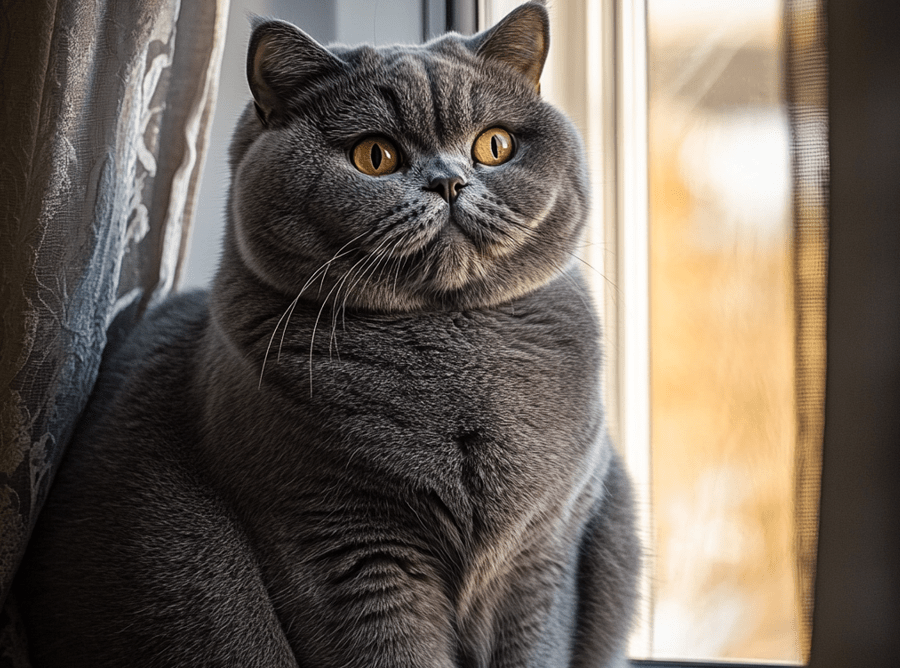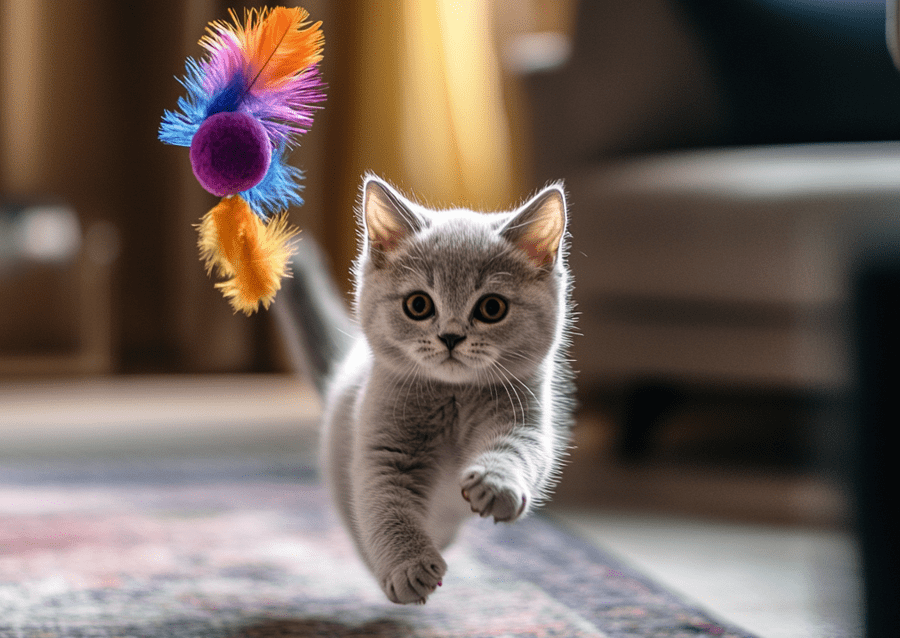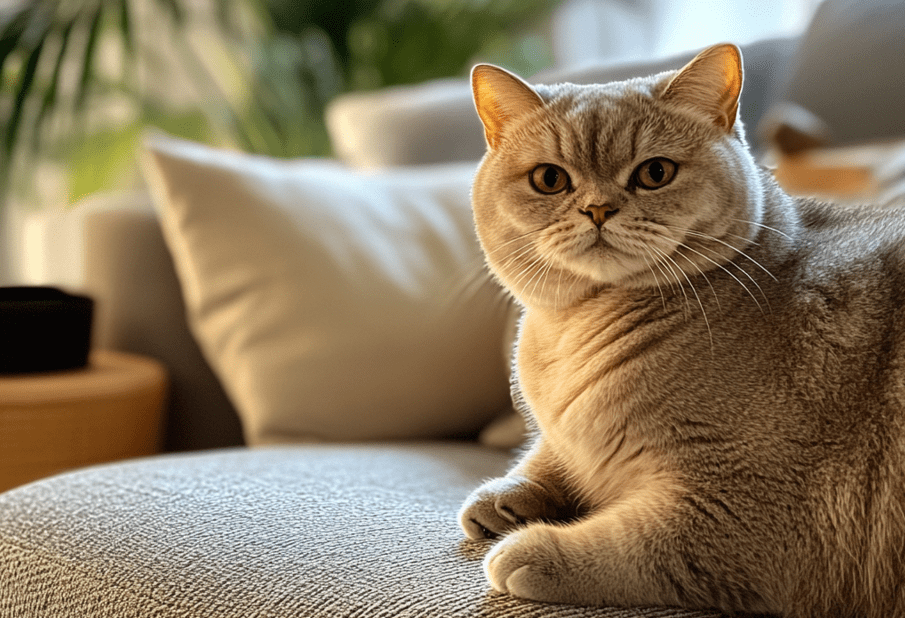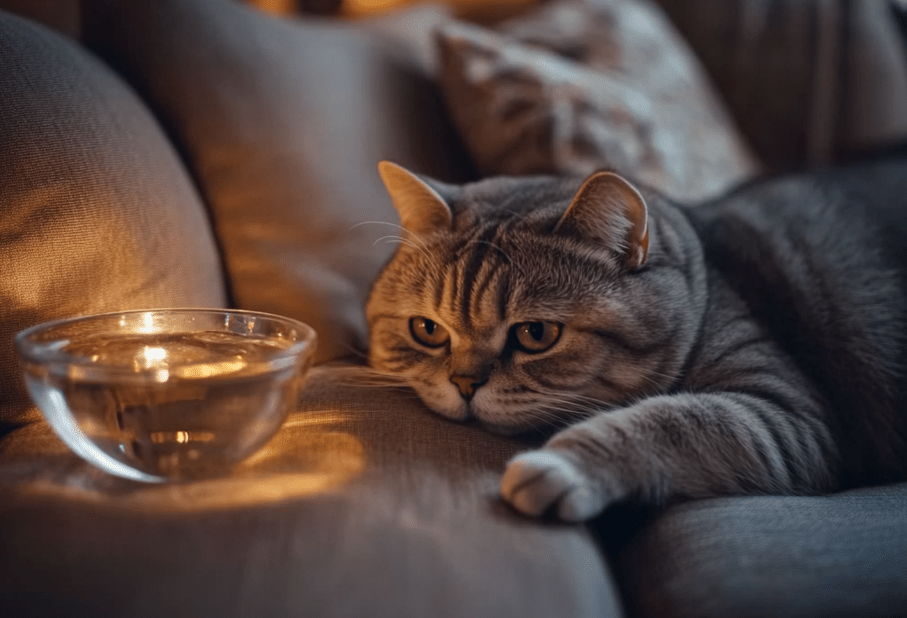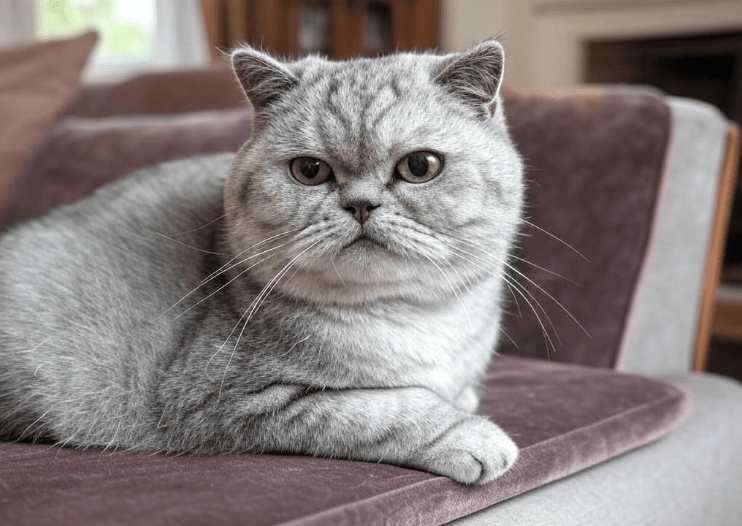
British Shorthairs, with their plush coats and endearing round faces, are beloved companions, but their curious nature often leads them to beg for a taste of your meal. When it comes to British Shorthair human food, pet owners must exercise caution, as not all human foods are safe for cats. This comprehensive guide explores which human foods are safe for British Shorthairs, which are dangerous, and how to ensure your cat’s diet supports their health. By understanding the dos and don’ts of feeding human food to your British Shorthair, you can keep your feline friend safe and thriving.
Why British Shorthair Human Food Requires Caution
British Shorthairs are obligate carnivores, meaning their bodies are designed to thrive on a diet primarily composed of animal-based proteins. While some human foods can complement their diet in small amounts, many are toxic or disruptive to their digestive system. Feeding British Shorthair human food inappropriately can lead to obesity, nutrient imbalances, or serious health issues like pancreatitis or toxicity. This article outlines safe and unsafe options to help you make informed choices for your cat’s well-being.
Understanding British Shorthair Nutritional Needs
To evaluate British Shorthair human food, it’s essential to understand their dietary requirements:
High-Quality Protein: Essential for muscle maintenance and overall health.
Moderate Fats: For energy and coat health, but excess can lead to obesity.
Minimal Carbohydrates: Cats lack the enzymes to efficiently digest carbs.
Taurine: An amino acid critical for heart and eye health.
Hydration: Crucial for urinary health, as British Shorthairs are prone to urinary issues.
Human foods should only be offered as occasional treats, comprising no more than 10% of your cat’s diet, with the rest coming from balanced cat food.
Safe Human Foods for British Shorthairs
Some human foods can be safe and even beneficial for British Shorthairs when given in moderation. Here are the top safe options for British Shorthair human food, along with preparation tips and benefits.
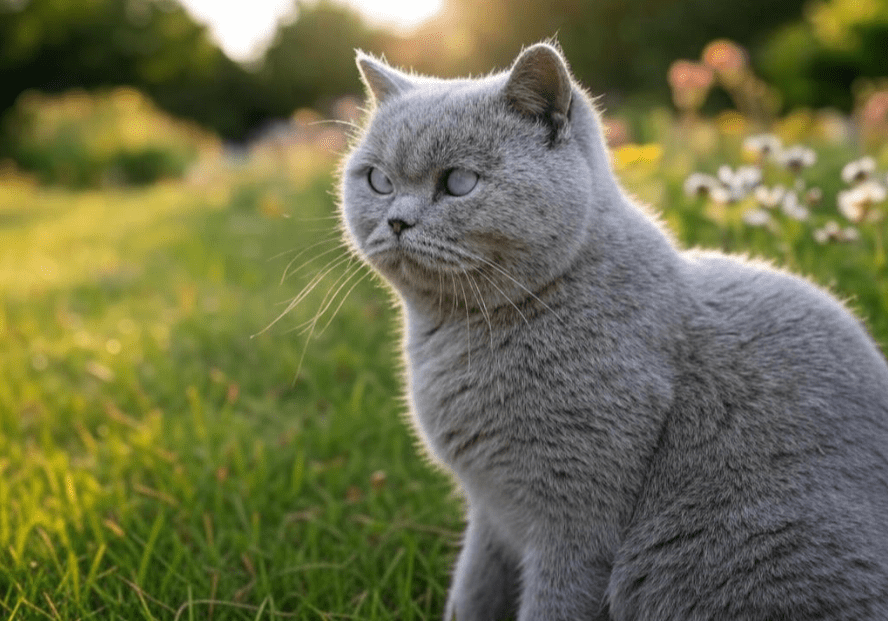
1. Cooked Lean Meats (Chicken, Turkey, Beef)
Why It’s Safe: High in protein and taurine, mimicking a cat’s natural diet.
Preparation: Cook thoroughly without seasoning, oils, or spices. Remove bones and skin to avoid choking or digestive issues.
Serving Size: Small, bite-sized pieces (e.g., 1–2 teaspoons) as a treat.
Benefits: Supports muscle health and satisfies carnivorous instincts.
Caution: Avoid raw meat due to the risk of bacterial contamination (e.g., Salmonella).
2. Cooked Fish (Salmon, Tuna)
Why It’s Safe: Rich in omega-3 fatty acids for coat and joint health.
Preparation: Cook plain (baked or steamed) without salt, garlic, or sauces. Remove all bones.
Serving Size: A small piece (1 teaspoon) once or twice weekly.
Benefits: Promotes shiny fur and reduces inflammation.
Caution: Limit tuna to avoid mercury buildup, and never feed raw fish, which can deplete thiamine.
3. Cooked Eggs
Why It’s Safe: A good source of protein and healthy fats.
Preparation: Scramble or boil without butter, oil, or seasoning.
Serving Size: A small portion (1/4 of an egg) as an occasional treat.
Benefits: Supports muscle and coat health.
Caution: Raw eggs pose a risk of Salmonella and biotin deficiency.
4. Plain Cooked Vegetables (Carrots, Green Beans, Pumpkin)
Why It’s Safe: Low in calories and high in fiber, aiding digestion.
Preparation: Steam or boil without salt or spices. Puree pumpkin for easier digestion.
Serving Size: 1–2 teaspoons as a treat.
Benefits: Helps with weight management and prevents constipation.
Caution: Avoid starchy vegetables like potatoes, which are hard to digest.
5. Plain Cooked Rice or Oatmeal
Why It’s Safe: Easily digestible carbs for sensitive stomachs.
Preparation: Cook plain without sugar, butter, or additives.
Serving Size: 1 teaspoon as an occasional treat.
Benefits: Soothes upset stomachs and provides mild energy.
Caution: Carbs should be minimal, as cats don’t need them in large amounts.
6. Small Amounts of Plain Yogurt
Why It’s Safe: Contains probiotics that support gut health.
Preparation: Choose unsweetened, plain yogurt with live cultures.
Serving Size: 1/2 teaspoon once or twice weekly.
Benefits: Improves digestion, especially for cats with mild diarrhea.
Caution: Many cats are lactose intolerant, so monitor for digestive upset.
Unsafe Human Foods for British Shorthairs
Many human foods are toxic or harmful to British Shorthairs, posing risks ranging from mild digestive upset to life-threatening conditions. Here are the top unsafe options for British Shorthair human food and why they should be avoided.
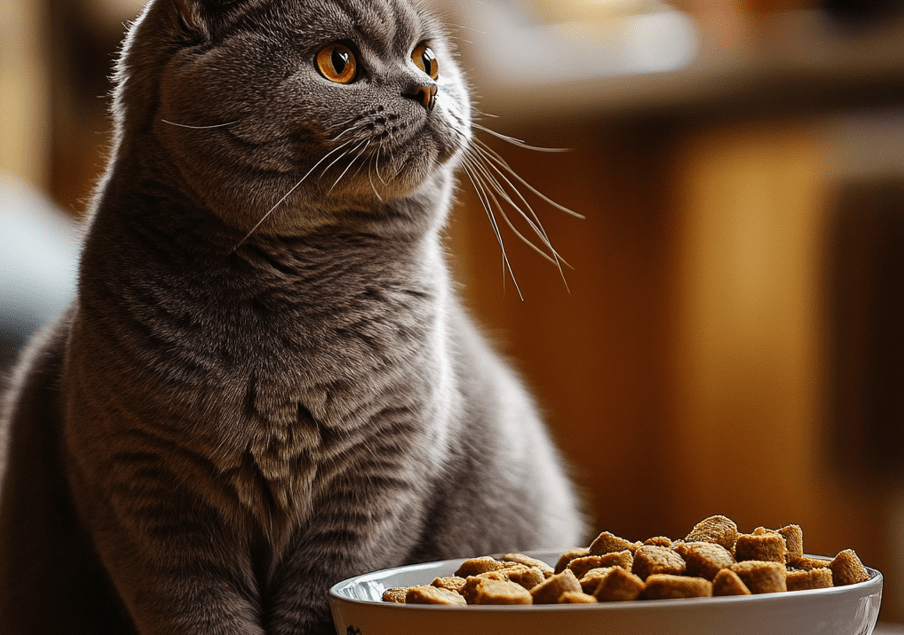
1. Chocolate
Why It’s Unsafe: Contains theobromine, toxic to cats, causing vomiting, seizures, or death.
Risks: Even small amounts can be dangerous.
Symptoms: Rapid heart rate, tremors, or collapse.
Action: Contact your vet immediately if ingested.
2. Onions and Garlic
Why It’s Unsafe: Contain N-propyl disulfide, which damages red blood cells, leading to anemia.
Risks: Found in cooked and raw forms, including powders in sauces or soups.
Symptoms: Lethargy, weakness, pale gums.
Action: Seek veterinary care if consumed.
3. Grapes and Raisins
Why It’s Unsafe: Can cause kidney failure in cats.
Risks: Even small amounts are toxic.
Symptoms: Vomiting, lethargy, reduced urination.
Action: Immediate veterinary attention is critical.
4. Dairy Products (Milk, Cheese)
Why It’s Unsafe: Most cats, including British Shorthairs, are lactose intolerant, leading to diarrhea or vomiting.
Risks: High-fat cheeses can also cause pancreatitis.
Symptoms: Bloating, gas, or loose stools.
Action: Avoid dairy, except for small amounts of plain yogurt.
5. Alcohol
Why It’s Unsafe: Toxic to cats, affecting the brain and liver.
Risks: Found in alcoholic beverages, desserts, or sauces.
Symptoms: Disorientation, vomiting, or coma.
Action: Seek emergency veterinary care.
6. Raw Dough
Why It’s Unsafe: Yeast ferments in the stomach, producing alcohol and causing bloating.
Risks: Can lead to stomach rupture or intoxication.
Symptoms: Distended abdomen, weakness, or collapse.
Action: Contact your vet immediately.
7. Caffeine
Why It’s Unsafe: Stimulates the nervous system, causing heart palpitations or seizures.
Risks: Found in coffee, tea, energy drinks, and some medications.
Symptoms: Restlessness, rapid breathing, or tremors.
Action: Seek urgent veterinary care.
8. Fatty or Fried Foods
Why It’s Unsafe: High fat content can cause pancreatitis or obesity.
Risks: Includes bacon, fried chicken, or buttery dishes.
Symptoms: Vomiting, diarrhea, or abdominal pain.
Action: Monitor and consult a vet if symptoms persist.
9. Bones and Fish Bones
Why It’s Unsafe: Can splinter, causing choking, intestinal blockage, or perforation.
Risks: Common in cooked poultry or fish.
Symptoms: Gagging, vomiting, or constipation.
Action: Seek veterinary care if bones are ingested.
10. Xylitol (Artificial Sweetener)
Why It’s Unsafe: Causes rapid insulin release, leading to hypoglycemia.
Risks: Found in sugar-free gum, candies, or baked goods.
Symptoms: Weakness, seizures, or collapse.
Action: Immediate veterinary intervention is needed.
Guidelines for Feeding British Shorthair Human Food
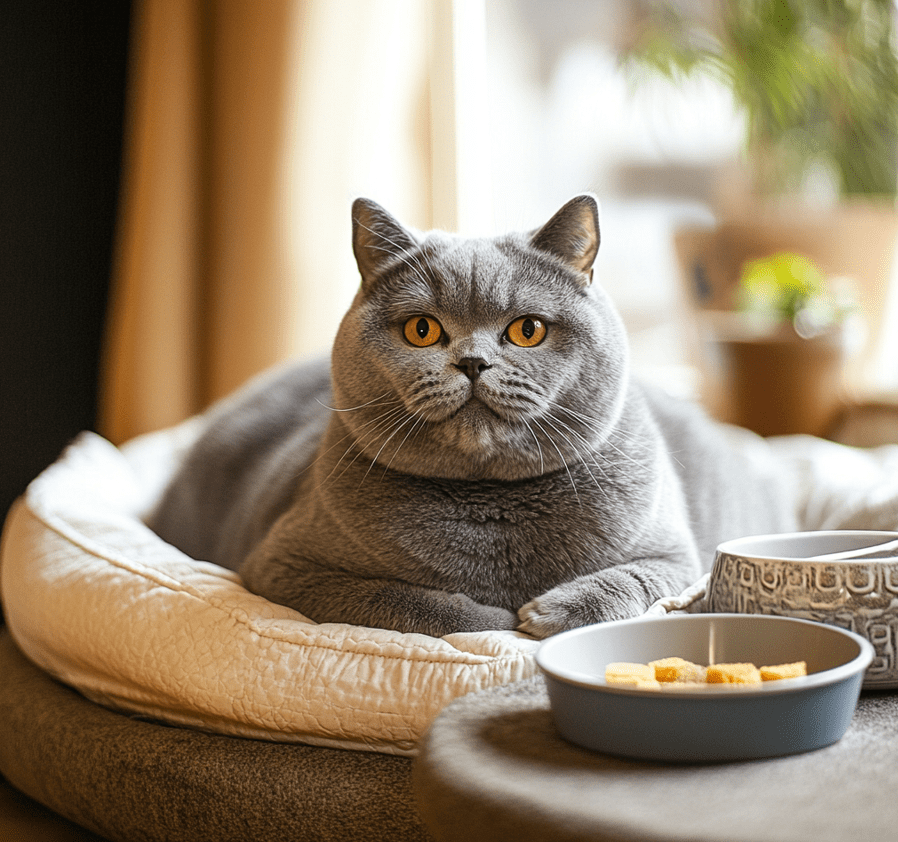
To safely incorporate British Shorthair human food into your cat’s diet, follow these best practices:
1. Offer Human Food Sparingly
Human foods should be treats, not staples. Limit treats to 10% of your cat’s daily caloric intake to avoid nutrient imbalances or weight gain.
2. Prepare Foods Properly
Always cook meats, fish, and eggs thoroughly, and avoid seasonings, oils, or additives. Remove bones, skin, and fat to prevent choking or digestive issues.
3. Monitor for Reactions
Introduce new foods gradually and watch for signs of allergies or digestive upset, such as vomiting, diarrhea, or itching. Discontinue if adverse reactions occur.
4. Consult Your Veterinarian
Before adding human foods to your cat’s diet, consult your vet, especially if your British Shorthair has health conditions like obesity, diabetes, or food sensitivities.
5. Prioritize Balanced Cat Food
Human foods cannot replace a complete and balanced cat food formulated for British Shorthairs. Choose high-quality cat food that meets their protein, taurine, and hydration needs.
6. Keep Toxic Foods Out of Reach
Store unsafe foods securely, and educate household members about the dangers of feeding British Shorthairs harmful human foods.
How to Respond to Accidental Ingestion
If your British Shorthair consumes an unsafe human food, act quickly:
Identify the Food and Quantity: Note what was eaten and how much.
Check for Symptoms: Look for vomiting, lethargy, or abnormal behavior.
Contact Your Vet: Call your veterinarian or an emergency pet poison hotline (e.g., ASPCA Animal Poison Control at 888-426-4435) for guidance.
Do Not Induce Vomiting: Unless instructed by a vet, inducing vomiting can cause harm.
Monitor Closely: Follow your vet’s advice and observe your cat for 24–48 hours.
Additional Tips for British Shorthair Health
Beyond managing British Shorthair human food, these practices support your cat’s overall well-being:
1. Maintain a Balanced Diet
Feed high-quality cat food tailored for British Shorthairs, with controlled portions to prevent obesity, a common issue in this breed.
2. Encourage Hydration
Provide fresh water daily and consider wet food to support urinary health, as British Shorthairs are prone to urinary crystals.
3. Regular Veterinary Checkups
Annual exams can detect early signs of dietary issues, obesity, or urinary problems, ensuring timely intervention.
4. Exercise for Weight Control
Engage your British Shorthair in daily play with toys like laser pointers or feather wands to maintain a healthy weight and stimulate digestion.
5. Groom to Prevent Hairballs
Brush weekly to reduce loose hair, which can cause digestive blockages if ingested.
Conclusion
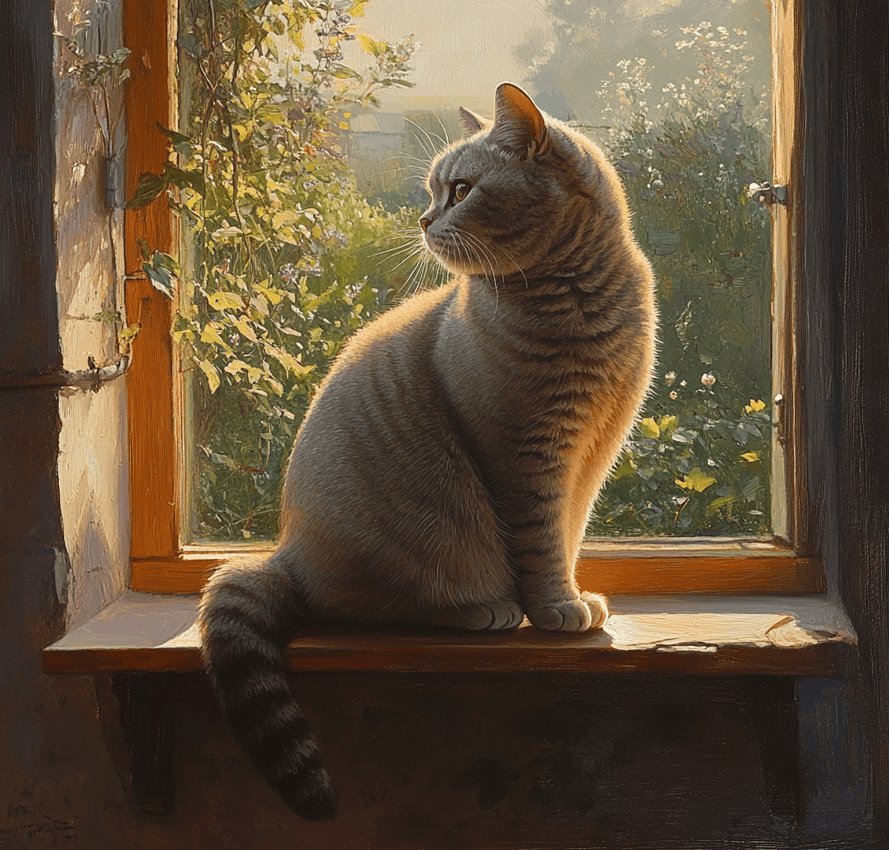
When it comes to British Shorthair human food, knowledge is power. While some human foods, like cooked chicken, fish, or plain yogurt, can be safe and beneficial in moderation, many others, such as chocolate, onions, or grapes, pose serious risks. By prioritizing a balanced cat food diet, offering human foods sparingly, and avoiding toxic options, you can keep your British Shorthair healthy and happy. Always consult your veterinarian before introducing new foods, and stay vigilant to ensure your cat’s diet supports their unique needs. With the right approach, you can satisfy your British Shorthair’s curiosity while safeguarding their well-being for years to come.

